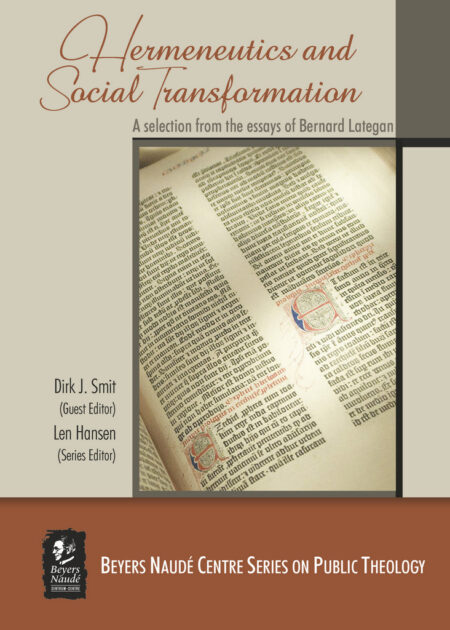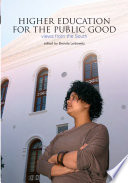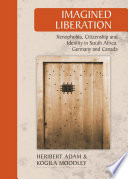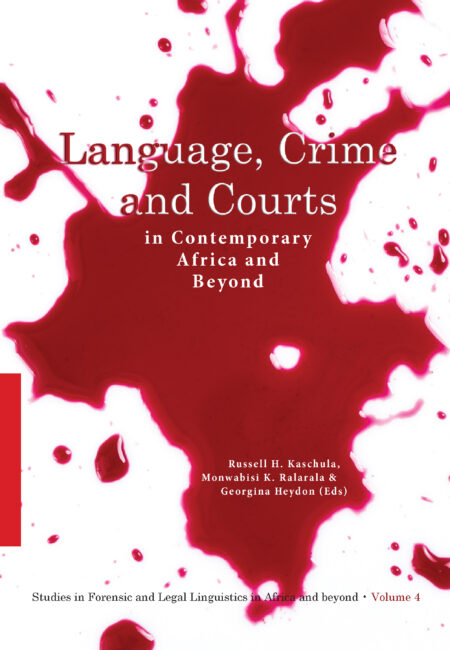-

Hermeneutics and Social Transformation
0R290,00“In a South African context … condemning apartheid is not enough. To make a non-racial, democratic, inclusive society viable and enduring, much more is required ? of which creative and imaginative theological thinking is not the least. Fundamental theological values and their implications for all the facets of society must be thought through ? not as an academic exercise, but as a grass-roots undertaking ? and the greatest challenge is to act in terms of this new understanding of society.”
– Bernard Lategan, Some implications of the family concept in New Testament texts
-

Higher Education for the Public Good
0R340,00The authors of this inspiring collection discuss philosophical approaches and present empirical and practical ideas for teaching and learning at university for the public good.
Four major aspects of transforming universities are explored: the purpose and ethos of the university; its conception of graduate attributes; the way programmes and teaching are delivered; and the institution’s approach to academics and their professional development. The book will be indispensable to all universities who are evaluating their own principles and practice.
-

Higher Education in South Africa
0R420,00Higher Education in South Africa should be of considerable interest to higher education researchers outside of South Africa, as well as within, for the general and comparative assessments it makes. The South African higher education researchers included within its covers have clearly engaged with research and writing from many parts of the world, which they have then applied to make sense of their own condition. – Malcolm Tight Lancaster University, UK
eBook: View eBook Version
-

Higher Education in South Africa
0R420,00Higher Education in South Africa should be of considerable interest to higher education researchers outside of South Africa, as well as within, for the general and comparative assessments it makes. The South African higher education researchers included within its covers have clearly engaged with research and writing from many parts of the world, which they have then applied to make sense of their own condition. – Malcolm Tight Lancaster University, UK
Print: View Print Version
-

Historical trauma and memory
0R325,00How wounds from a previous generation may weigh on children and grandchildren contain much of interest. Yet if we unpack the ghostly, the eerie, and the spectral in transgenerational hauntings, if we allow for the suffering or the disturbed to forge social links, such contacts may enable breaking into reconnections and afterlives. E One only needs to think of the near epidemic of rape in South Africa to sense violent hypermasculinity erupting as madness, mediated by a history of brutal, racialised reduction. But it is also important to move beyond the brutalities and madness, to consider the individual and collective refigurations surfacing out of layers of catastrophe. Nancy Rose Hunt: Conference Keynote Address, OBeyond Trauma? Notes on a Word, a Frame, and a Diagnostic Category.O
Historical Trauma and Memory: Living with the Haunting Power of the Past is based on essays presented at a conference with the same name which was held in Kigali, Rwanda in April 2019. The book gives readers front row seats as an interdisciplinary group of scholars from law, psychology, history, the arts, anthropology, theology, and philosophy address the complex matrix of the emotional legacies of historical trauma, cultural legacies, people interacting with their social and political environment, and the interplay of these factors in different post-conflict societies.
eBook: View eBook Version
-

Historical trauma and memory
0R260,00How wounds from a previous generation may weigh on children and grandchildren contain much of interest. Yet if we unpack the ghostly, the eerie, and the spectral in transgenerational hauntings, if we allow for the suffering or the disturbed to forge social links, such contacts may enable breaking into reconnections and afterlives. … One only needs to think of the near epidemic of rape in South Africa to sense violent hypermasculinity erupting as madness, mediated by a history of brutal, racialised reduction. But it is also important to move beyond the brutalities and madness, to consider the individual and collective refigurations surfacing out of layers of catastrophe. Nancy Rose Hunt: Conference Keynote Address, “Beyond Trauma? Notes on a Word, a Frame, and a Diagnostic Category.”
Historical Trauma and Memory: Living with the Haunting Power of the Past is based on essays presented at a conference with the same name which was held in Kigali, Rwanda in April 2019. The book gives readers front row seats as an interdisciplinary group of scholars from law, psychology, history, the arts, anthropology, theology, and philosophy address the complex matrix of the emotional legacies of historical trauma, cultural legacies, people interacting with their social and political environment, and the interplay of these factors in different post-conflict societies.
Print: View Print Version
-

Hospitality and Hostility in the Multilingual Global Village
0R465,00“This interdisciplinary, international, and multi-lingual collection of essays explores a broad range of issues related to hospitality and hostility, in literary and cultural contexts from antiquity to the present. Insightful theoretical and historical discussions undergird richly detailed particular studies. The central focus unifies the diverse pieces, which are original, well-researched and reasoned, and clearly written.
A solid contribution to scholarship in several fields (including linguistics, anthropology and Internet culture), the volume is also enjoyable to read. Its lively and appealing pieces on recent novels and contemporary trends lend a fresh and contemporary feel.” -Prof. Pamela S. Saur, Lamar University, Texas -

Human Geographies of Stellenbosch
0R240,00Amid a growing ‘turn’ towards Southern cities, South African urban geographers continue to remind us why and how to attend to local context and draw on theory from elsewhere. Human Geographies of Stellenbosch: Transforming Space, Preserving Place? (edited by Ronnie Donaldson) provides a deep look at crucial questions facing one of South Africa’s most well-known town-cities. Written from years of local knowledge by scholars at Stellenbosch University, this volume asks what urban transformation means, who it is for, and the politically tantalising question of whether and how we might hold on to some of the old while aspiring towards the new? In a global context in which we are all searching for how to justly remember our messy past, how to decolonise and hold onto what makes places unique, this volume will be of interest to scholars asking such questions in and beyond urban studies.
Print: View Print Version
-

Icons – Imaging the Unseen
0R490,00The experience of the divine has been referred to by many artists over the centuries, whether their subject was the human figure, landscape, still life or indeed religious or biblical themes. Art therefore requires a kind of openness; a willingness to mediate rather than to control. This sensitivity can best be described as humility, an obeisance to something we are part of. Therefore, to ‘see’ the ‘unseen’ in visual arts brings about awe and requires ‘iconic viewing’. The spiritual realm, as portrayed by icons, has a healing quality in a world where the news and the arts are so full of tragedy and where the church’s message so often sounds escapist or naUve.
-

Imagined Liberation
0R370,00On a spectrum of hostility towards irregular migrants, South Africa ranks on top, Germany in the middle and Canada at the bottom. South African xenophobic violence by impoverished slum dwellers is directed against fellow Africans. Why would a society that liberated itself in the name of human rights turn against people who escaped human rights violations or unlivable conditions at home? What happened to the expected African solidarity? Why do former victims become victimizers?
Imagined Liberationasks what xenophobic societies can learn from other immigrant societies which avoided the backlash against multiculturalism in Europe.



